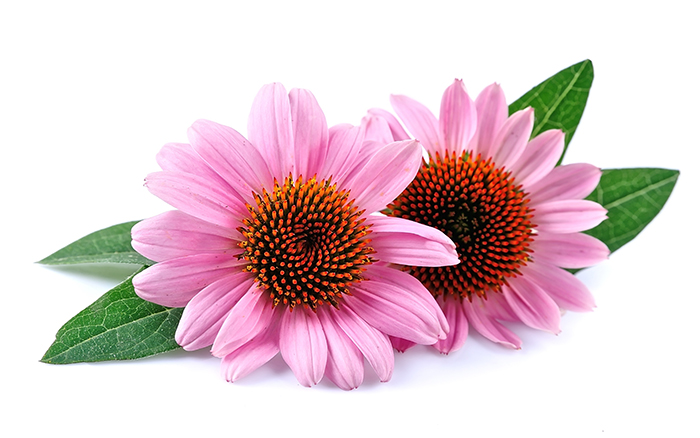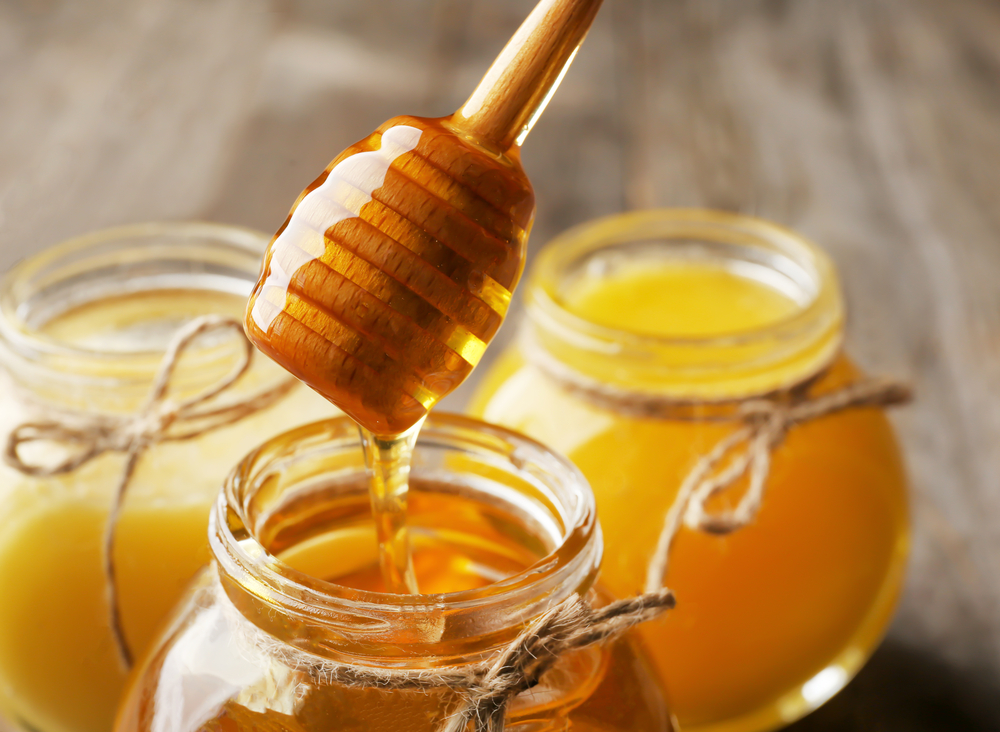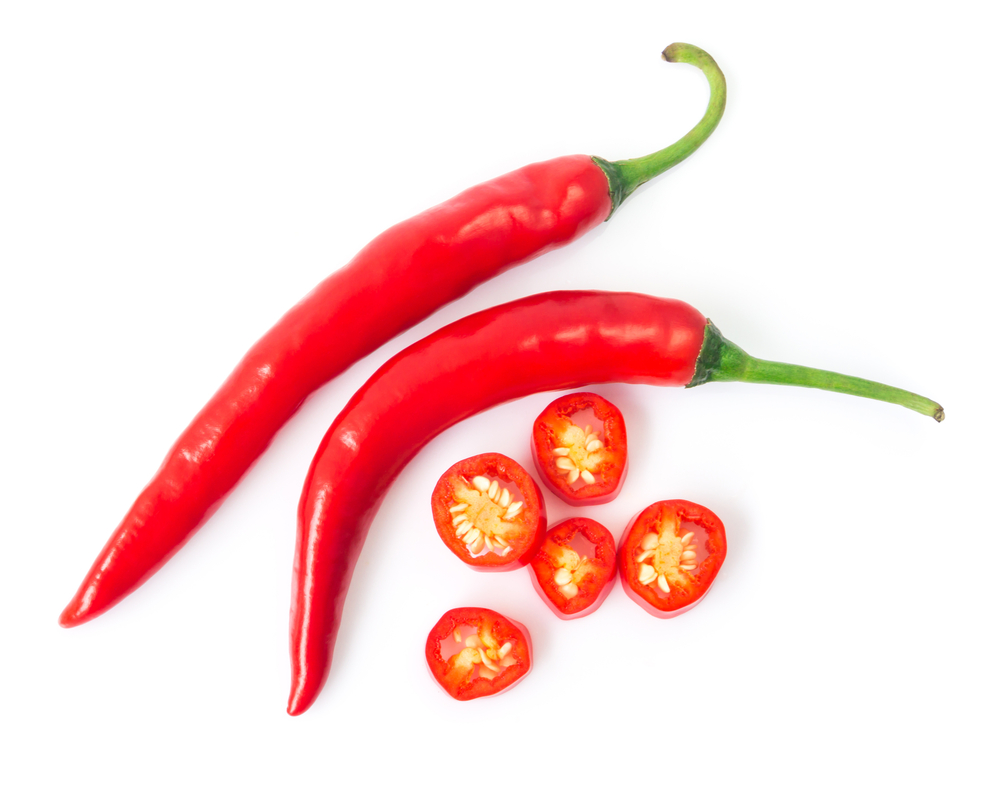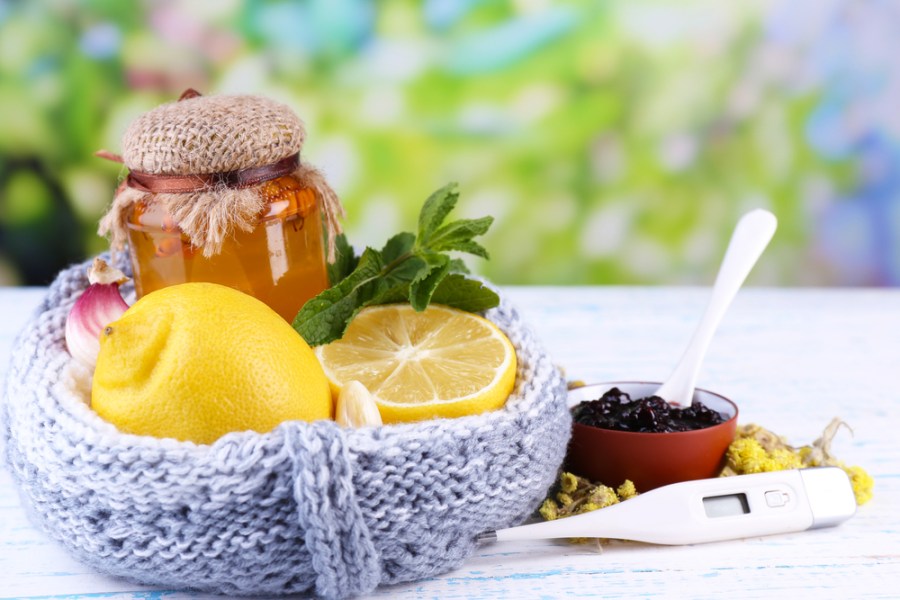Which natural cold and flu remedies work best?
Tips for fighting off colds and flu the natural way, with these expert-recommended remedies from Dr Sarah Brewer.
Does Vitamin C cure colds and flu?
Vitamin C is one of the most powerful immune-boosting nutrients around. It has antiviral actions that mean cold and flu symptoms are less likely to develop. Vitamin C supplements have been shown to halve this risk when given in doses of 600mg-1g per day.
Garlic to fight viruses and illness
Garlic is also good as it contains a number of antiviral and anti-infective substances that help fight viruses and bacteria, as well as boosting the activity of immune cells. Black garlic is especially beneficial as it contains higher levels of antioxidants and produces less odour than the white variety. As a supplement, try Healthspan Black Garlic (£12.95, healthspan.co.uk).
Does echinacea help colds?
Echinacea is another popular remedy – data has shown that taking the herb decreases the odds of developing a cold by 58 per cent and shortens the duration of one by almost a day and a half. Try A.Vogel’s Echinaforce (£9.75, avogel.co.uk).

Pelargonium for treating colds and sore throats
My go-to treatment though for colds, bronchitis, sore throats or sinusitis symptoms is pelargonium. It’s more effective than anything I can prescribe as a doctor and I wouldn’t be without it in my first aid cabinet. Extracts from the root of the plant have antiviral and antibacterial properties and help clear infected mucus. If taken as early as possible during a cold, symptoms usually resolve within 24 hours. Keep taking it for three days, however, or the infection will return. Try Healthspan Pelargonium (£14.45).
The best homemade cold remedies
Try ginger to support your immune system
Ginger is a great, tasty tool for fighting colds as it helps reduce inflammation and clear congestion – plus anything spicy will make you sweat and feel better. Try grating some ginger root into hot water to make a tea, or buy ginger tea bags – we like Pukka Herbs Three Ginger Tea which packs a punch!
Vitamin D for an immune system boost
Low levels of Vitamin D have been linked to higher rates of colds and flue. In winter especially it’s important to ensure you’re getting enough Vitamin D. When daylight levels drop, consider taking a supplement (10 micrograms a day according to Public Health England recommendations) and make sure you’re eating plenty of fish and eggs.
Make your own natural chest salve
Melt half a cup of coconut oil carefully over your hob. Then pour it into a heat-save container. Add 15 drops of peppermint essential oil and stir. Then cover it up and leave to cool. When it’s cool you can rub onto your chest and under your nose (being careful not to get any in your eyes) and it will help you breathe easy.
How to get rid of flu
Steam a blocked nose with eucalyptus oil
 Eucalyptus oil can gel you breathe easier while your nose is blocked and sore, plus it feels quite invigorating. Add a few drops to the end of your shower cubicle or tub while you shower, or add five drops to a bowl of steaming water and lean your face over it, with a towel over the back of your head. Breathe in for 10 minutes or so.
Eucalyptus oil can gel you breathe easier while your nose is blocked and sore, plus it feels quite invigorating. Add a few drops to the end of your shower cubicle or tub while you shower, or add five drops to a bowl of steaming water and lean your face over it, with a towel over the back of your head. Breathe in for 10 minutes or so.
Zinc can ward off a cold
Taking zinc at the first sign of illness can help support your immune system. It also has an antiviral effect, so it can lessen the effects of a cold. Take between 50 and 100 milligrams daily.
- Read about the other minerals you need to stay healthy
Make a tummy bug drink

If your illness has given you a bit of a dodgy tummy, make your own natural electrolyte drink to restore and rehydrate. Combine two tablespoons of honey with half a teaspoon of salt, and four cups of water. Sip slowly.
Cold and flu fighting foods
Apple cider vinegar for a sore throat
It’s an acquired taste, but apple cider vinegar is great for clearing a clogged up throat. Mix two tablespoons with a little hot water and a spoonful of honey for flavour.
Local raw honey to help a sore throat

Local honey is fabulous for boosting your immunity, soothing a sore throat and also helping with hay fever. It’s packed with antioxidants and particularly good mixed with hot water and lemon juice for bonus Vitamin C.
Patients with a cough are now being advised to eat honey or mix a honey and lemon drink instead of visiting their GP, as doctors are being warned by Public Health England to stop prescribing antibiotics.
Drink plenty of water to cure a cold
Drink eight or more glasses of water a day to help relieve dry eyes and to thin the mucus so it’s easier to breathe.
Chicken soup to help a cough
That old wives’ tale that chicken soup cures all ills turns out to be (almost) true! A chicken soup using bones and plenty of vegetable is a great way to reduce inflammation on your lungs, easing coughs and congestion, as well as helping your immune system. It helps to thin mucus, and if you add garlic too it will help you breathe easier.
Chili peppers to help a runny nose

It sounds counterintuitive to eat spicy food when your nose is streaming, but actually many spices can help. The capsaicin in particularly hot peppers can help reduce inflammation and makes an excellent decongestant.
Turmeric as an anti-inflammatry

Turmeric is also great for fighting viruses thanks to its anti-inflammatory properties. Add to stews or curries, or drink mixed into warm milk.
Garlic is antibacterial
Garlic is famed for soothing colds and sore throat – although it’s best consumed raw for real health benefits. Hold your nose and mash some into a spoonful of honey. Other benefits: vampire repelling.
- Find out how your gut health affects your immune system
- Bacteria in your NOSE influence how bad your colds are!








